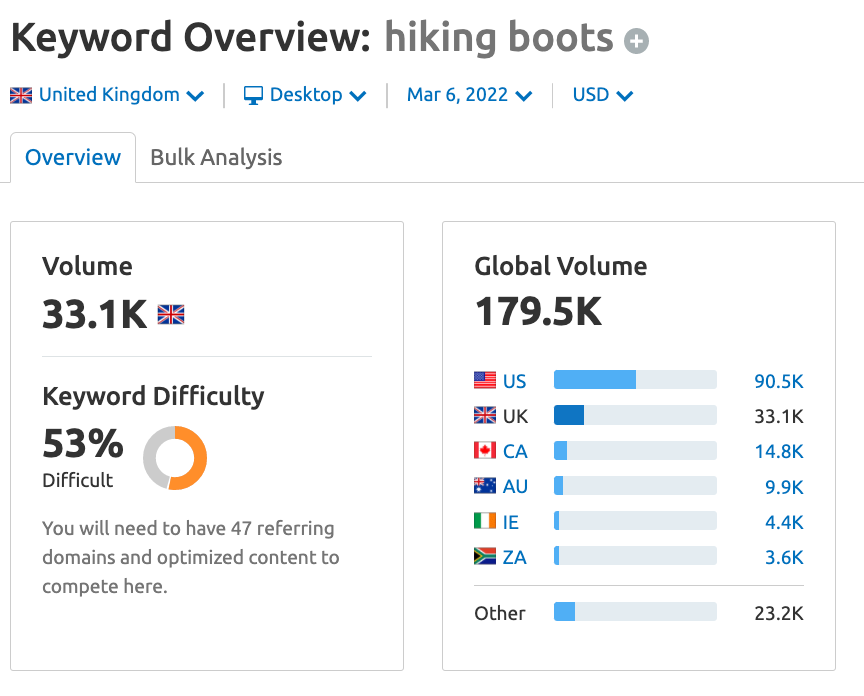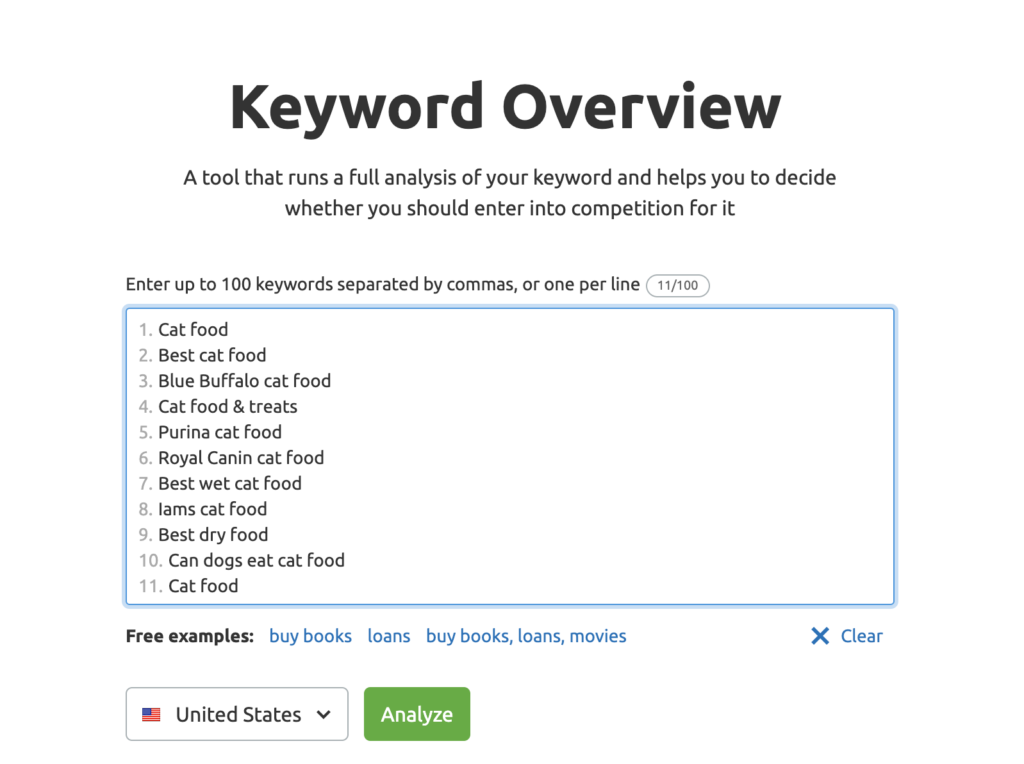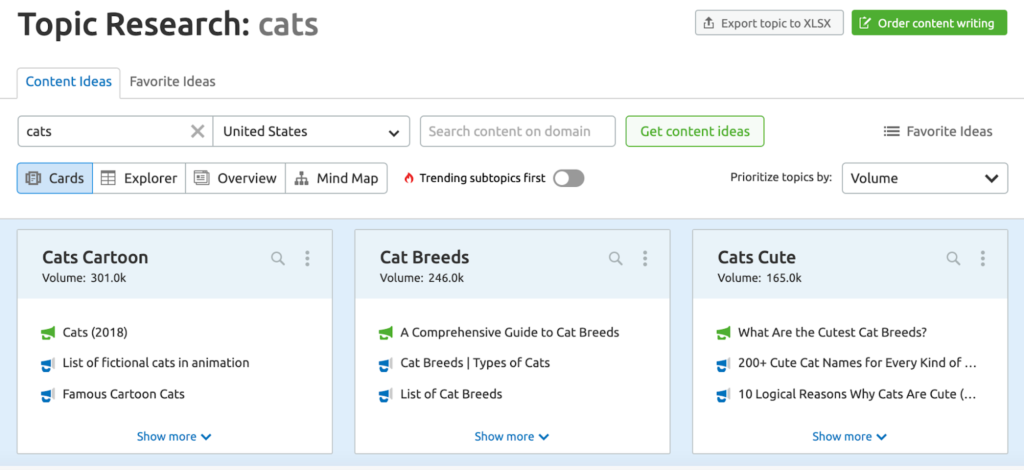Professional — Creative — Innovative
Keyword Research Service
For Business, Agency, influencer, Blogger, Reseller , Local Business, E-commerce, Retail Businesses, SMEs, Restaurants, Healthcare, Travel, Real estate , Law firms, Media, News, Fitness, Casino, Gambling
Unleash Keyword Research Potential Today
Maximize your online visibility and drive more traffic with our expert on-page SEO optimization services.
01.

Identify Your Business Objectives
Determine what you want to achieve and who your target audience is to determine what types of keywords to target.
02.

Brainstorm Relevant Topics
Make a list of topics related to your business that you want to target to help come up with potential keywords.
03.

Conduct Keyword Research
Use tools like Google Keyword Planner, Ahrefs, and SEMrush to identify relevant keywords with high search volume and low competition.
04.

Analyze and Refine Your List
Refine your list by focusing on long-tail keywords that are specific to your business, have high search volume, and low competition.
Why is Keyword Research important?
Keyword research is important for several reasons:
Helps you understand your audience
Keyword research allows you to understand what your target audience is searching for online, giving you insights into their needs and interests.
Improves your SEO
Using relevant and targeted keywords on your website can help improve your search engine rankings, making it easier for your target audience to find you.
Helps you create relevant content
By understanding what your audience is searching for, you can create content that is relevant and valuable to them, increasing engagement and building trust.


Keyword Research Do's
- Use keywords in headlines and content
- Create high-quality, relevant content
- Use meta descriptions and titles
- Improve website load speed
- Optimize images with alt tags
Keyword Research Don'ts:
- Stuff keywords unnaturally
- Use broken links
- Ignore mobile optimization
- Have duplicate content
- Overuse headers or titles.
Need help with your IT endeavors? Contact us to get a professional service.


What is Keyword Research?
Keyword research is the process of finding keywords used by people to search for information related to a specific topic. Its goal is to identify high-demand, low-competition keywords to optimize website content and improve its ranking in search engines. This helps businesses attract more targeted traffic and increase conversions.
It includes the following
Question Keywords
Question keywords are keywords that are phrased as questions, such as “What is the best pizza place near me?”
Commercial Intent Keywords
Commercial intent keywords are keywords that indicate the searcher is looking to make a purchase or take some type of action, such as “buy pizza online.”
Informational Keywords
Informational keywords are keywords that are used by people who are looking for information on a specific topic, but may not be looking to make a purchase.
Transactional Keywords
Transactional keywords are keywords that indicate the searcher is looking to make a purchase or take some type of action, such as “buy pizza online.”
Navigational Keywords
Navigational keywords are keywords that are used by people who are looking to navigate to a specific website or page, such as “Domino’s Pizza website.”
Featured Snippets
Featured snippets are short pieces of information that are displayed at the top of search engine results pages (SERPs) in response to specific queries. They are often displayed in a special format, such as a box or table, and are meant to provide a quick answer to the searcher’s question.
Keyword Research FAQ
Unleashing the power of knowledge with our FAQ guest post service
To conduct keyword research, you can use keyword research tools such as Google Keyword Planner, SEMrush, Ahrefs, or Moz. These tools will provide you with data on search volume, competition, and related keywords.
Short-tail keywords are broad and generic search terms that consist of one or two words, while long-tail keywords are more specific and contain three or more words. Long-tail keywords have lower search volume but are more targeted and have higher conversion rates.
Choose keywords that are relevant to your business, have high search volume, low competition, and high commercial intent. Conduct competitor research and analyze their keyword strategy to identify the keywords that work well in your industry.
Keyword difficulty is a metric that measures how difficult it is to rank for a particular keyword. It takes into account factors such as competition, search volume, and domain authority.
Keyword research tools such as Ahrefs, Moz, and SEMrush provide keyword difficulty scores based on the factors mentioned above.
It is recommended to target 5-10 primary keywords per page or piece of content. However, you can also target long-tail keywords and related keywords to expand your reach.
Negative keywords are search terms that you do not want your ads to show up for. They help you avoid irrelevant clicks and save your ad budget.
You can use keyword tracking tools such as Ahrefs, SEMrush, or Moz to monitor your keyword rankings and track your progress.
Keyword mapping is the process of assigning specific keywords to specific pages on your website to ensure that each page targets a specific keyword and topic.
Keyword cannibalization occurs when multiple pages on your website target the same keyword, leading to competition and confusion for search engines.
Conduct keyword research and ensure that each page on your website targets a specific keyword and topic. Use internal linking to direct search engines and users to the relevant pages.
It is recommended to review and update your keyword strategy periodically, at least once a quarter, to stay up-to-date with changes in search trends and competition.
A primary keyword is a keyword that best describes your main topic or theme. It’s typically a high-volume, high-competition keyword that you want to rank for in search engines.
A secondary keyword is a related keyword that supports your primary keyword. These keywords are often lower in volume and competition, but can still drive relevant traffic to your website.
Keyword clustering is a technique for grouping similar keywords together to create a more organized keyword strategy. By grouping keywords that are related in theme or intent, you can create more focused and effective content that targets multiple keywords at once.
A local keyword is a keyword that includes a location or geographic reference, such as a city or region. Local keywords are important for businesses that target customers in a specific area, as they can help attract local traffic and improve visibility in local search results.
A branded keyword is a keyword that includes your brand name, product name, or company name. Branded keywords can help you increase visibility for your brand and drive traffic to your website.
A competitor keyword is a keyword that your competitors are ranking for in search engines. By researching competitor keywords, you can identify new opportunities for your own keyword strategy and see what keywords your competitors are targeting.
Keyword research can help with your content marketing by providing insights into the topics and keywords that your target audience is searching for. By creating content that targets relevant keywords, you can improve the visibility of your content in search results and attract more traffic and leads.